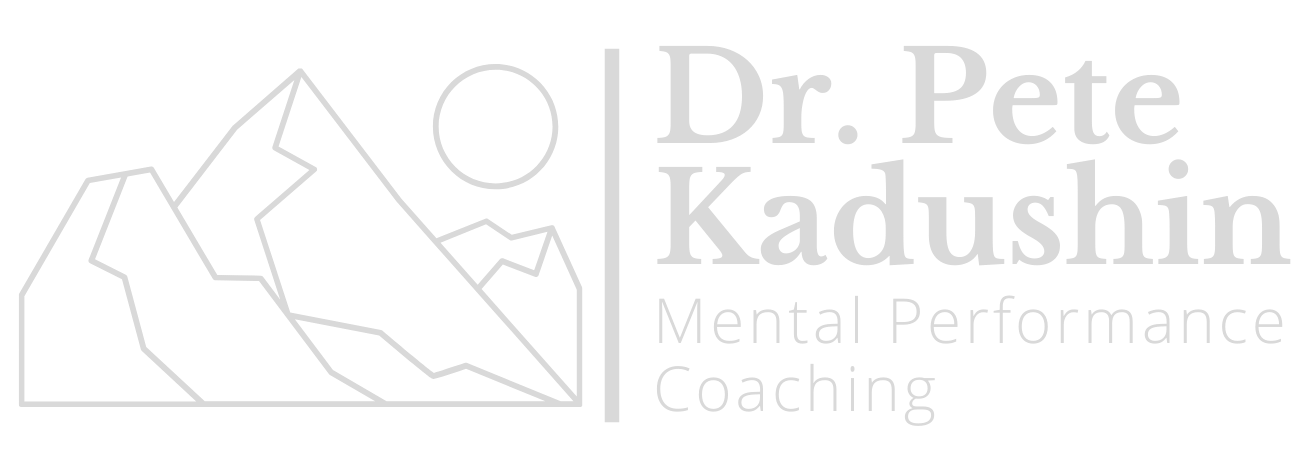Ep. 48: Beyond Resilience: Transforming Challenges into Growth with Dr. Adam Wright and Dr. Nick Holton of the Antifragile Academy
Today, I’m thrilled to unpack a fascinating conversation with two incredible minds in the world of human performance and flourishing—Adam Wright and Nick Holton, the co-founders of The Antifragile Academy.
Adam Wright, with his extensive background as a high-performance coach and consultant, brings a wealth of knowledge from his experience with elite athletes and executives. He’s currently enhancing mental performance for the Washington Nationals, among other high-stakes environments. Nick Holton, equally distinguished, combines his expertise in well-being and performance coaching with a rich academic background, making significant strides in applying the science of human flourishing to real-world challenges.
Together, Adam and Nick have built The Antifragile Academy, a platform dedicated to pushing past the constraints of traditional resilience by fostering antifragility through scientifically-backed training and coaching. Their mission is to equip individuals with the tools to not just survive but thrive amid challenges, thereby enhancing both personal and professional growth.
What is Antifragility?
During our conversation, Adam and Nick broke down the concept of antifragility, which takes resilience one step further. While resilience often involves bouncing back to a baseline state after adversity, antifragility is about growing stronger from those challenges. It’s about creating an environment where our response to stress is to adapt in ways that improve our capability to handle future stress and add richness and meaning to our lives.
Nick elaborated on this by distinguishing the proactive nature of antifragility from the reactive nature of resilience. While resilience is triggered when an adverse event happens, an antifragile human goes looking for challenges that they see as opportunities to learn and enhance one’s abilities. Really, it’s a growth mindset in action! It’s about building and strengthening our psychological and behavioral flexibility so that we can handle whatever life throws our way more effectively.
Practical Steps
Adam shared insightful strategies on fostering environments that support antifragile behaviors, emphasizing the importance of creating spaces where individuals feel safe to take risks and push their boundaries. Here are some actionable steps derived from our conversation that you can apply to start cultivating antifragility in your life:
1. Intentionally Seek Challenges: Just as a muscle grows through the stress of exercise, our mental and emotional resilience can be built by deliberately seeking out meaningful challenges that push us beyond our comfort zones. Start small and gradually increase the challenge point as you become more competent - and don’t forget that growth requires rest!
2. Develop Psychological Flexibility: Utilizing tools like meditation and diffusion (from Acceptance and Commitment Therapy) can help you become more adaptable in the face of stress. Practicing mindfulness helps you recognize your thoughts, feelings, and sensations as impermanent visitors and creates the space between you and your experience - which unlocks your capacity to think and act differently, even under pressure.
3. Build a High Support/High Challenge Environments: In any area where you’re seeking growth and development, strive to create environments that foster open communication, mutual support, and shared growth. This can be achieved by encouraging vulnerability, practicing empathy, and being open to feedback.
4. Embrace Learning and Adaptation: Continuously seek knowledge and be open to changing your strategies based on new information. This could mean adjusting your goals, trying new approaches, or simply altering your daily routines to better align with your long-term aspirations.
Both Adam and Nick stressed the importance of mindset in cultivating antifragility. Viewing challenges as opportunities rather than threats can dramatically change how we experience stress and adversity. They suggest that by changing our relationship with discomfort, we can connect with negative experiences in a different way, helping turn them into catalysts for personal development and success.
Thriving Through Challenge
Our discussion with Adam and Nick from The Antifragile Academy highlighted the transformative power of antifragility. This approach doesn’t just help us manage the stresses of today; it prepares us to meet the uncertainties of tomorrow with confidence and a proactive stance towards personal and professional development. Even better, it allows us to thrive by embracing the richness of the human experience, both the highs and the lows, in a way that will let us flourish over the whole arc of our lives.
For anyone looking to dive deeper into the principles of antifragility and how to apply them, I highly recommend visiting The Antifragile Academy’s website. They offer a range of resources from courses to coaching that can guide you on your journey to becoming not just resilient, but truly antifragile.
Remember, the path to antifragility is a continuous one, filled with learning, adaptation, and growth. It’s about steering into challenge with purpose, training your mind so that adversity becomes advantage, and remaining open to the full breadth of our human experience. Let’s keep pushing the boundaries of what we can achieve and transform the way we handle challenges into opportunities for unprecedented growth.
Thanks for tuning in, and until next time, let’s keep thriving in our Mental Training Lab.
Learn more about The Antifragile Academy



